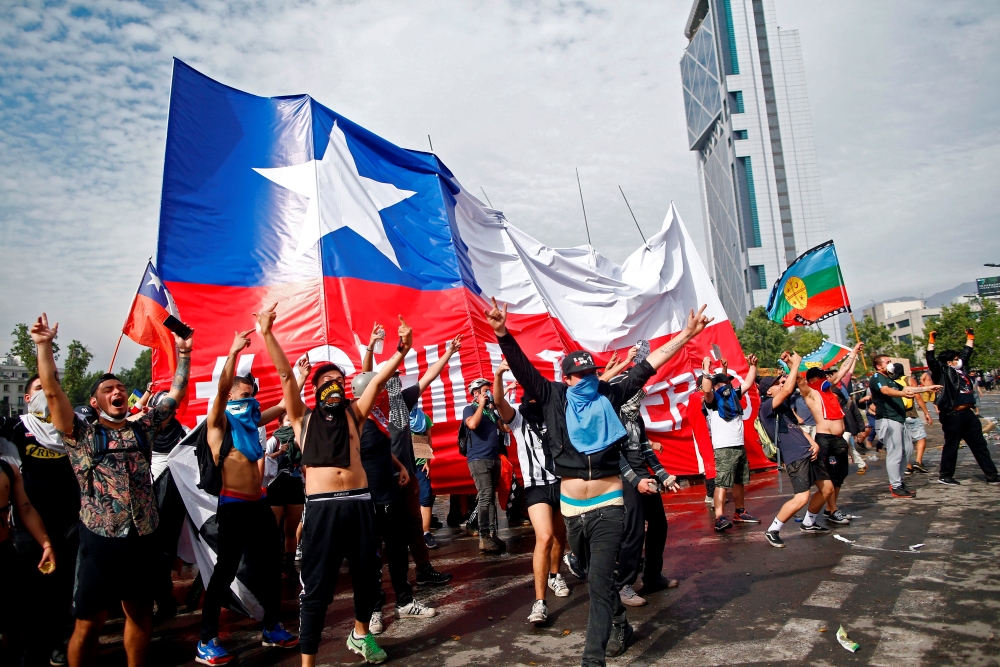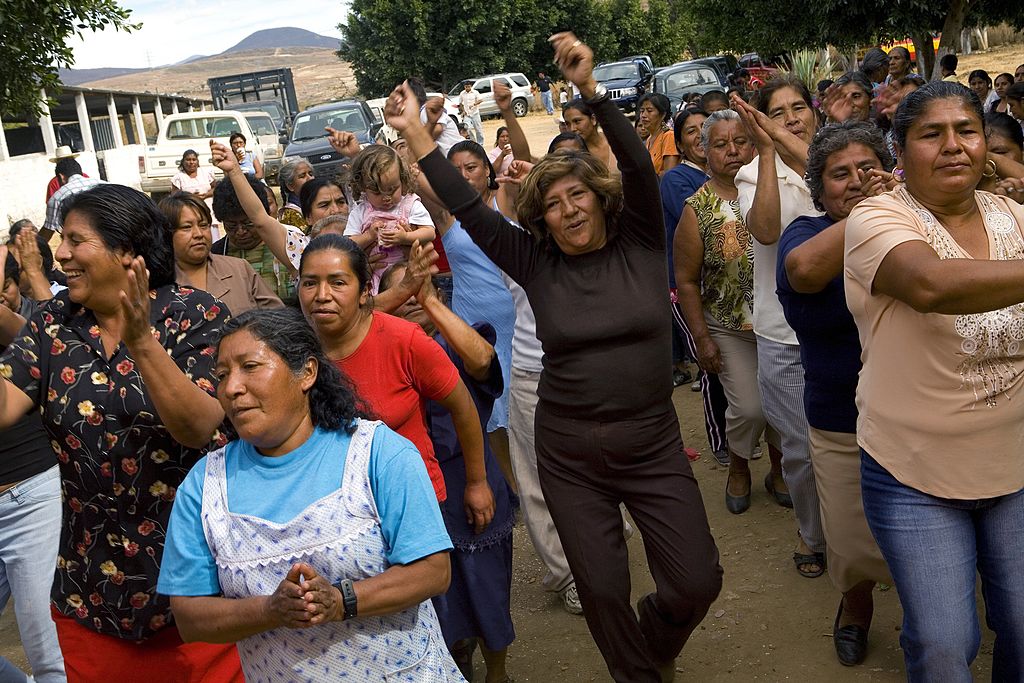This article was updated from a previous version.
Chile was a reference point for Brazil long before “Chicago Boy” Paulo Guedes became President Jair Bolsonaro’s minister for the economy.
Many Brazilians, myself included, marveled at the universities and clean streets, the functioning public transportation system, museums and churches – lately, even Chilean soccer started to look appealing. We watched with envy as, year after year, Chile topped the regional development rankings.
My first trip abroad as a tourist – which, unlike most working class women of color in Brazil, I was able to pay for myself – was to Santiago in 2012. I was eager to see all these treasures with my own eyes. But sightseeing at the Plaza de Armas, I kept noticing small groups of protesters pass by. All kinds of demonstrators holding posters with demands: housewives, workers, retirees, young people. I asked my guide what was happening, and he shyly answered that a right-wing government was cutting benefits, and people were complaining.
I admit I was a bit incredulous. What could be so bad? You live in Chile! As a young, working class black woman from Rio de Janeiro, who grew up in a Brazil that was booming, the thought that something similar would happen back home didn’t then cross my mind.
But just a year later, I had joined my own set of protesters. In 2013, we flooded the streets across Brazil to protest first a bus fare increase, but also the billions of dollars going to host major sports events rather than to fix hospitals and schools. Then, as now, those small bands of Chilean demonstrators came to mind. Millions of Chileans took to the streets this October, but that didn’t happen out of the blue. They’ve been trickling in, drop by drop, since at least 2012.
Latin America is not short on indignation. We are not wanting for reasons to scream and yell. But we have yet to learn how to turn our protests into structural change — to get what we need before we grow hoarse and go quiet. My message to Chile is that we cannot let our indignation cloud our vision. The cries of Brazil in 2013 are a warning: instead of the relief we hoped for, we’ve ended up with a president of the far-right, and an economic czar who defends the same market model that Chileans are on the streets protesting against now.
Of course I want Brazil to rethink its history, to topple statues honoring slave owners and “heroes” who killed indigenous and black populations while building our nation. But that cannot be our primary goal. Nor can the pursuit of heroes, with a recipe to solve all our problems, be our aim. We can’t excuse ourselves from thinking about what brought us out onto the streets in the first place.
Forget cries for military intervention, or the belief that impeaching a president will magically fix the exchange rate. Perhaps what we need is to simply redefine what development means to us, and what model we want to follow. When we look at Chile today, it should not be out of envy, but to force us to reconsider the system that governs lives across the continent.
The other day I read a familiar refrain. “If we continue this way, the economy will suffer.” When did we start imparting feelings to the economy? Tens of millions of people living below the poverty line, unemployment, high food prices: the dominant logic is that the general welfare of the economy should take precedence over these ills. But as long as GDP is policymakers’ main criteria for judging whether life is good or bad, protesters will continue to crowd the streets and plazas of Latin America.
I often joke with my friends that if I ever have a child, I’ll name the baby “Market.” The world will always take care not to upset her. Baby Market will always be cared for.








